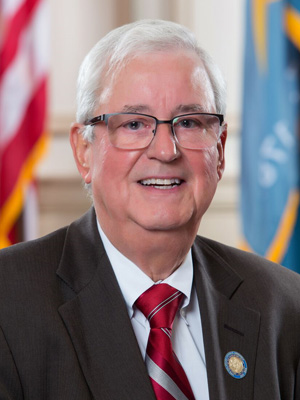2015-07
Accelerating Medical Innovation to Save American Lives, Reduce Burden on Healthcare, Improve the Economy and Restore America's Leadership in Biomedical Research

REPRESENTATIVE JOSEPH E. MIRO (DE)
WHEREAS, The Low Income Home Energy Assistance Program (LIHEAP) was authorized by Title XXVI of the Omnibus Budget Reconciliation Act of 1981 (Public Law 97-35, 95 Stat.357) and began in 1982; and
WHEREAS, the purpose of LIHEAP is to assist low-income households, particularly those under the poverty level, that pay a high proportion of household income for home energy to meet immediate home energy needs; and
WHEREAS, federal dollars for LIHEAP are allocated by the United States Department of Health and Human Services to the states as a block grant and are disbursed under programs designed by the individual states; and
WHEREAS, LIHEAP is not an entitlement, and accordingly remains dependent on the Federal appropriations process for its funding; and
WHEREAS, LIHEAP is administered at the state and county levels by government agencies and implemented primarily at the local level by Community Action Programs (CAPs), local welfare agencies and area agencies on aging; and
WHEREAS, even though the number of households eligible for the LIHEAP program continues to exceed those receiving assistance, this funding has been a lifeline during the economic downturn, helping to ensure that people do not have to choose between paying their energy bills and paying for food or medicine and;
WHEREAS, the number of households eligible for LIHEAP has increased but only one in five eligible households nationwide actually get the benefits; and
WHEREAS, federal law requires that families receiving LIHEAP assistance have incomes below 150% of the Federal poverty level or 60% of the state median income; and
WHEREAS, the increasing poverty rate coupled with underfunding of energy assistance programs, could potentially increase arrearages creating a more tenuous situation for families that are unable to pay their bills; and
WHEREAS, the LIHEAP program budget has been cut by $1.7 billion – a decrease of more than one-third between 2009 to 2014; and
WHEREAS, the $3.4 billion allocated for Fiscal Year 2015 is far less than the $4.7 billion requested from Members of Congress, Mayors from 20 states, utility companies and advocates for the poor; and
NOW, THEREFORE BE IT RESOLVED, that the National Hispanic Caucus of State Legislators urges the President and the members of the U.S. House and Senate Appropriations Committees to increase LIHEAP funding to no less than $4.7 billion to ensure greater protections for minority, low- and fixed-income households struggling to pay their energy bills; and
BE IT FINALLY RESOLVED, that copies of this Resolution be dispatched to the President of the United States, the Vice President of the United States, Members of Congress, House and Senate Leadership, and other elected officials as appropriate.
THIS RESOLUTION WAS ADOPTED ON AUGUST 1, 2015, AT THE NHCSL EXECUTIVE COMMITTEE & BUSINESS BOARD OF ADVISORS MEETING HELD IN VAIL, CO. AND RATIFIED ON NOVEMBER 21, 2015 AT THE NHCSL ANNUAL EXECUTIVE COMMITTEE & BUSINESS BOARD OF ADVISORS MEETING HELD IN ATLANTA, GA.
